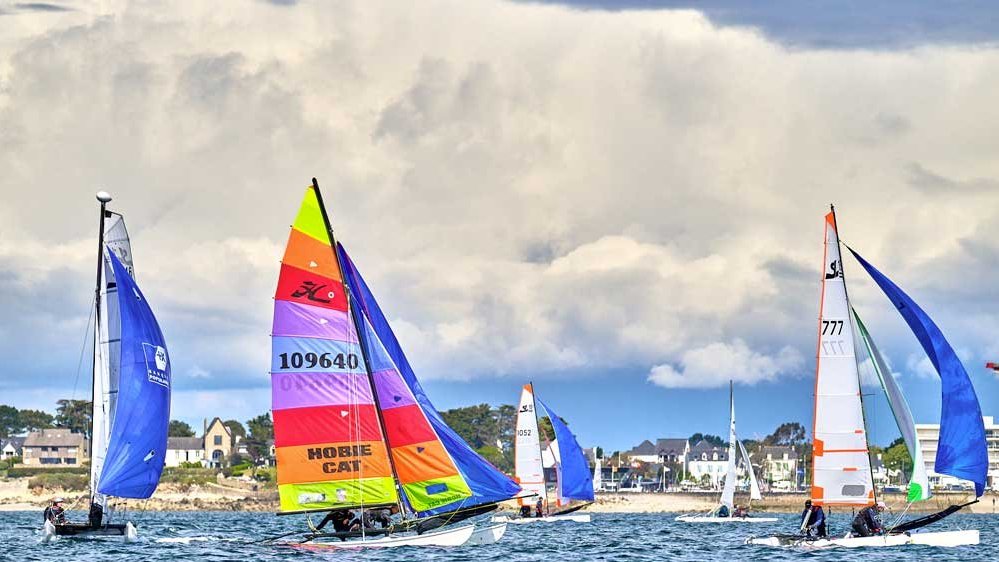Jules Verne Trophy
Orange back in the match
lundi 22 avril 2002 –
"We’re reaping the dividends of our long investment to the east." The tone was clear and precise, like on the first day. Bruno Peyron joked with his navigator Gilles Chiorri, on talking about the clemency of a trade wind, well set in force and direction, and the effortless glide of the big cat on a smooth azure blue sea. "Since our left turn yesterday, we’re really shifting, almost 30 knots last night, under full main and solent on starboard tack at an excellent wind angle" described Orange’s skipper. "We’re in the right place with the right wind and the right sea" he said smilingly. "We’re satisfied for several reasons : by avoiding beating against the worst of the low, we were still able to maintain our progress in terms of latitude in similar proportions to those of our "sister ships" in The Race which last year had to tack at reduced speed up the Brazilian coast." By attacking the Doldrums from the east, Peyron and his men have also given themselves the choice of a passage into the Northern Hemisphere more or less to the west or more or less to the east. "The gateway would seem to be located at between longitude 22 or 23° west" stated Chiorri. With new found speed and daily runs of more than 500 miles, Orange will enter the calms of the famous intertropical convergence zone by midday on Wednesday 24th. With Salvador de Bahia abeam, Peyron’s men have found milder living conditions again and latitudes more frequented by French yachtsmen. "It more and more up to the helmsmen now" emphasised Peyron. "The solent helps us to generate apparent wind. So it means helming with finesse to preserve speed." The crossing of the Doldrums looks like being without any major problems, in light easterly airs. Orange won’t start to slow down until late evening tomorrow. The wind will then gently swing round astern of the boat and with the big gennaker hoisted Orange will start to plunge into the Doldrums in the search for fresh trade winds, those of the Northern Hemisphere.
Quote / unquote...
Bruno Peyron : "As soon as we rounded the Horn, we had to take a long term view, because ahead of us the situation looked hopeless. Taking the direct route, that’s to say the one usually taken by sailors up the South American coast, was taking big risks for the boat, without the certitude of consequential gains on our score card. We’re happy to have entered the trades without breaking anything, trades that are already enabling us to concentrate on crossing the Equator. The boat is nice and dry, very sound and in good shape. Temperatures are mild and the flying fish are back..."
Gilles Chiorri : "From my time in the merchant navy, I’ve always been fascinated about deep sea mariners. Yesterday we passed a Chinese freighter on the Argentina-Namibia run and I had the pleasure of talking with the captain over the VHF. There will certainly be more shipping in the North Atlantic. We have already lit our masthead strobe light again, instead of and in place of the nav lights on the hulls that tend to blind the helmsmen at night. This Jules Verne Trophy is exciting. I’m learning an enormous amount, on the weather of course, but also from a human and sporting point of view."
Denis van den Brink / Mer & Media Agency Translation David Palmer - SeaSpeak
Dans la même rubrique
Jules Verne Trophy : 250 nm in one day again for Orange
East - West Atlantic record : Paul Larsen : "Will we or won’t we ?"
Jules Verne Trophy : Orange in the anteroom of the trades...
East - West Atlantic Record : Maiden II daily report : Days are long…
 Sea, Sail & Surf news
Sea, Sail & Surf news










